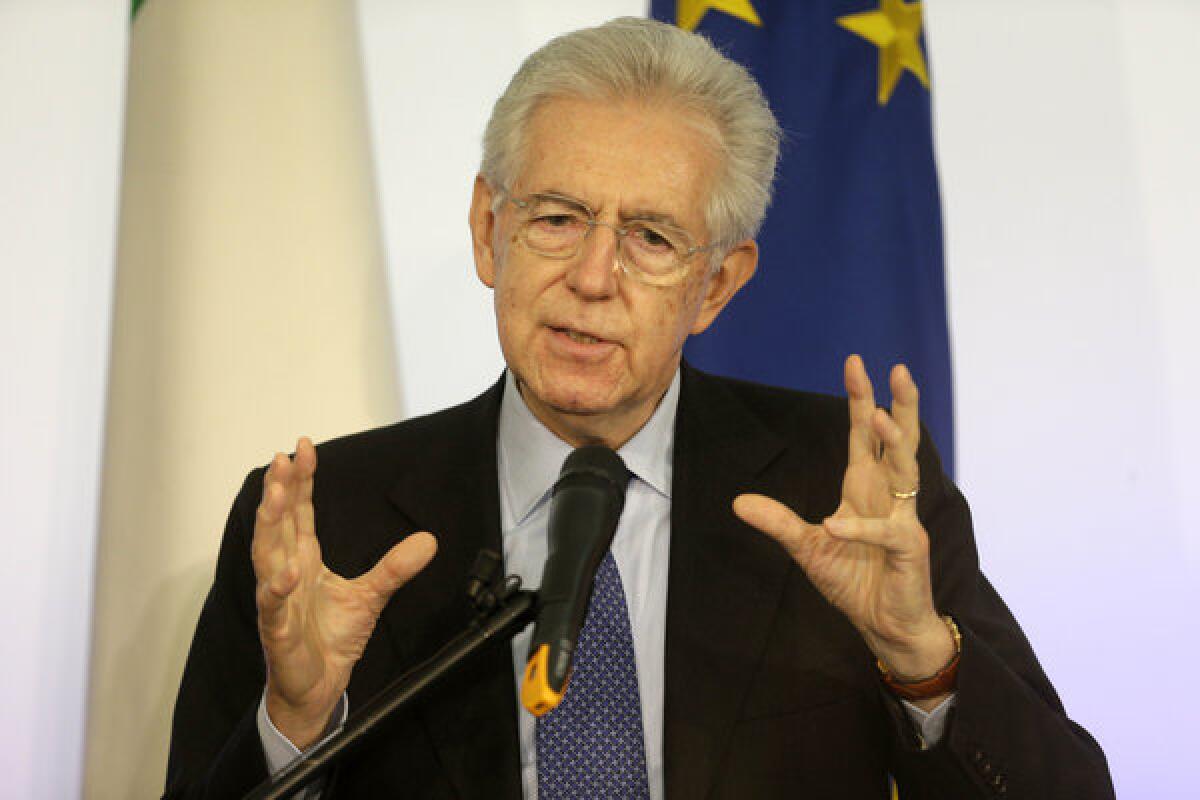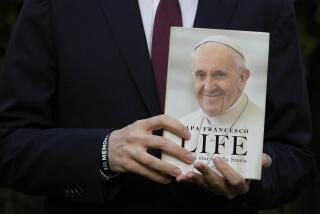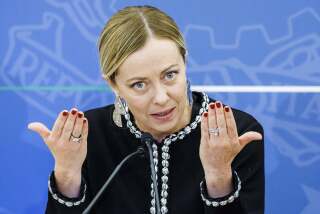Monti won’t run in Italian elections but is willing to serve

- Share via
LONDON -- Prime Minister Mario Monti, who steered Italy through tough economic times over the last 13 months, said Sunday he would not run in upcoming elections but would consider any request to head a future government.
Monti, who resigned from his post late last week but will stay on as caretaker prime minister until the Feb. 24 election, fielded questions at a two-hour news conference over his unelected government of technocrats and his future plans.
Most of the questions for the economics professor and former European Union business commissioner focused on his future political plans.
Monti said he “will not join any party. But he added: “I would be ready to offer my encouragement, advice and, if necessary, leadership” to any proposal put to him that met the right conditions.
However, in a barbed summary of what he saw as a bewildering mix of recent criticisms and flattery from his predecessor, Silvio Berlusconi, he appeared to banish the idea of collaboration with the former prime minister’s center-right Freedom Party.
Monti’s sudden and early resignation was prompted by Berlusconi’s attack on the government’s fiscal and pension reforms and the withdrawal of the Freedom Party’s support for the technocrat government.
Outlining what he called the Agenda Monti, guidelines “to change Italy and change Europe” and improve Italy’s economic and social life, Monti told reporters that the nation needed further reforms to liberalize labor and corporate markets, adjust taxes and modernize the legal system.
His government has already set in motion unpopular labor and pension reforms that Monti acknowledged had caused unrest and complaints of rising unemployment and little growth. The reforms nonetheless have reduced Italy’s huge public debt without recourse to emergency funds from the European Union or the International Monetary Fund.
Italy’s standing among its European neighbors has risen as a consequence, Monti said, and “Italians can be European citizens with their heads held high.”
There were further fundamental changes needed in the national culture and mentality, Monti added, citing a low birthrate and the undervalued role of women in society and the economy.
ALSO:
Wave of nationalism sweeps through Northeast Asia
2012 year in review: Benghazi, revolt, austerity and Suu Kyi
Hundreds of stores destroyed as raging fire guts Kabul market
More to Read
Sign up for Essential California
The most important California stories and recommendations in your inbox every morning.
You may occasionally receive promotional content from the Los Angeles Times.










